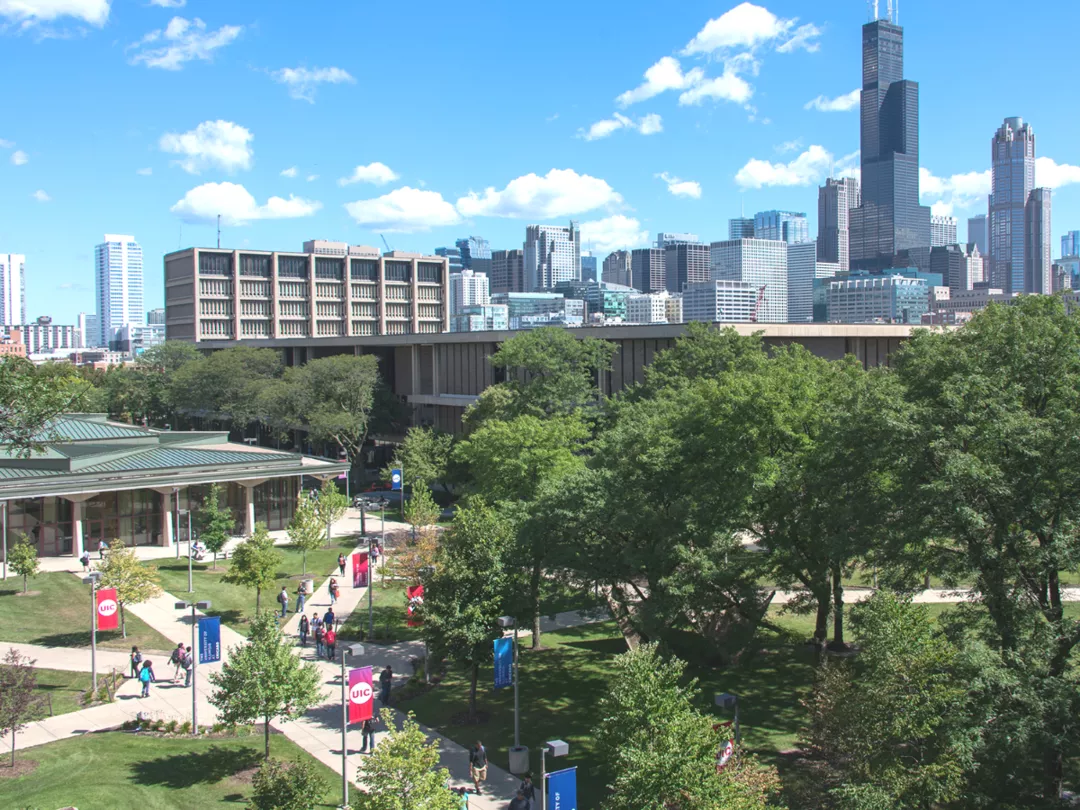-
hello@abroadcube.com
Mail us
-
Call For Help:
98779 83783
-
Whatsapp Us
70090 34921
The Department of Civil and Materials Engineering (CME) offers programs leading to the Master of Science and Doctor of Philosophy degrees in Civil Engineering. Study and research leading to a degree in Civil Engineering is available in the areas of geotechnical and geoenvironmental engineering, environmental engineering, water resources engineering, structural engineering, structural mechanics, structural health monitoring, sensors and nondestructive testing, earthquake engineering, concrete materials, reinforced and prestressed concrete, steel structures, and transportation engineering.
Research in Water Resources engineering is funded by various agencies including the US Environmental Protection Agency, the US Geological Survey and various state and industrial sources. Some of the representative research activities include: Impacts of global warming on water resources; Hydromechanics; Hydraulic engineering and structures; Fate and transport of emerging contaminants in the environment; Nutrient removal to prevent eutrophication and combat Gulf hypoxia.
| Level | Masters |
| Discipline | Engineering |
| Duration | 24 months |
| Intakes | Jan, Aug |
| Application Fees | USD 0 |
| Tuition Fees | USD 32506 |
| Campus | Main |
| Language proficiency (minimum) | |
| IELTS | 6.5 |
|---|---|
| TOEFL | 80 |
| PTE | 54 |
| Duolingo | Not Required / Waiver |
| Exam proficiency (minimum) | |
| SAT | Not Required / Waiver |
|---|---|
| ACT | Not Required / Waiver |
| GRE | Not Required / Waiver |
| GMAT | Not Required / Waiver |
Minimum GPA - 70.0%
QS Quacquarelli Symonds is the world’s leading provider of services, analytics, and insight to the global higher education sector, whose mission is to enable motivated people anywhere in the world to fulfil their potential through educational achievement, international mobility, and career development.
THE (Times Higher Education) has been providing trusted performance data on universities for students and their families, academics, university leaders, governments and industry, since 2004. We create university rankings to assess university performance on the global stage and to provide a resource for readers to understand the different missions and successes of higher education institutions.
The Academic Ranking of World Universities (ARWU) was first published in June 2003 by the Center for World-Class Universities (CWCU), Graduate School of Education (formerly the Institute of Higher Education) of Shanghai Jiao Tong University, China, and updated on an annual basis
The "Webometrics Ranking of World Universities" is an initiative of the Cybermetrics Lab, a research group belonging to the Consejo Superior de Investigaciones Científicas (CSIC), the largest public research body in Spain. CSIC is among the first basic research organizations in Europe. The CSIC consisted in 2006 of 126 centers and institutes distributed throughout Spain.

